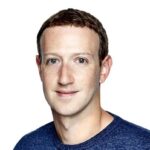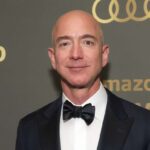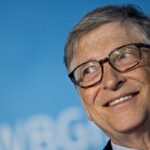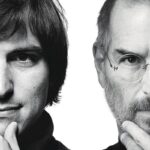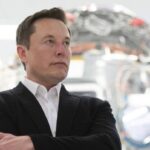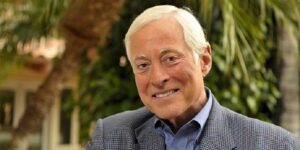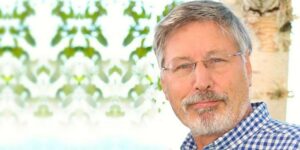Vinod Khosla biografie en quotes
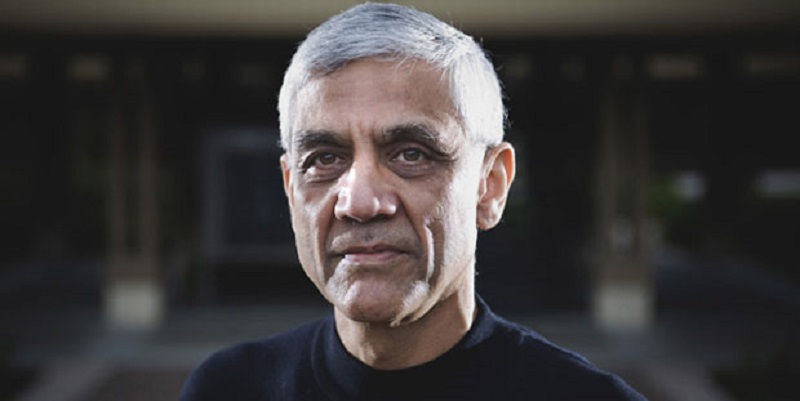
Vinod Khosla (1955) is een Indiaas-Amerikaanse zakenman, investeerder en technoloog. Vinod Khosla is de mede-oprichter van het bekende Sun Microsystems en tevens oprichter van Khosla Ventures. Vinod verdiende een groot gedeelte van zijn immense rijkdom met durfkapitaalinvesteringen. Hij deed deze vooral in de energietechnologie, software en netwerken. Hij wordt beschouwd als een van de meest succesvolle durfkapitalisten.
Vermogen
Forbes rekende Vinod Khosla tot de 400 rijkste mensen in de Verenigde Staten in 2014. In 2021 stond hij op plek 92 van deze lijst. Tegenwoordig wordt het eigen vermogen van Vinod Khosla door Forbes geschat op 4.7 miljard dollar, goed voor plek 551 in de lijst van rijkste mensen op aarde.
Hoogtepunten van Khosla zijn:
- Oprichter van Khosla Ventures, durfkapitaalbedrijf in Silicon Valley;
- Khosla Ventures investeert in experimentele technologieën zoals robotica en bio-geneeskunde;
- Khosla werkte 18 jaar lang bij durfkapitaalfirma Kleiner Perkins Caufield & Byers;
- Khosla is getrouwd met zijn jeugdvriendin Neeru Khosla en ze hebben samen 4 kinderen.
Vinod Khosla is 67 jaar oud in 2022.
Vinod Khosla biografie
Vinod Khosla werd geboren op 28 januari 1955 in New Delhi. Zijn vader was een Indiaas officier bij de strijdkrachten van India en was gestationeerd in New Delhi. Zijn vader wilde dat Vinod ook het leger in zou gaan. Toch ontwikkelde hij andere interesses. Zo was hij onder meer geïnteresseerd in ondernemerschap, nadat hij als tiener had gelezen over de oprichting van Intel door Andrew Grove en Robert Noyce. Tegenwoordig is Intel de grootste fabrikant van centrale verwerkingseenheden en halfgeleiders (semiconductors).
Vinod was er van overtuigd dat hij een succesvolle loopbaan kon bereiken in de technologie. Dit idee werd versterkt toen hij las dat de mede-oprichter van Intel, Andrew Grove, geld kreeg van investeerders toen het bedrijf nog in de kinderschoenen stond.
Opleiding, academische achtergrond en vroege loopbaan
Hij behaalde een technologische graad in elektrotechniek aan het prestigieuze Indian Institute of Technology (IIT) in Delhi. Na het afronden van deze opleiding probeerde hij zijn eigen bedrijf te starten, maar de onderneming mislukte. Daarop vertrok hij naar de Verenigde Staten.
Hij begon een masteropleiding in biomedische wetenschappen aan de Carnegie Mellon. Later deed hij een MBA aan Stanford University Graduate School of Business in 1980. Op Stanford ontmoette hij enkele gelijkgestemden en ontwikkelde hij een nieuw bedrijfsidee.
Bedrijven en investeringen
Na het behalen van zijn MBA op Stanford ontwikkelde Vinod een nieuw bedrijfsplan voor een elektronisch ontwerpautomatiseringsbedrijf. Ook maakte hij kennis met medewerkers van Intel en werd hij oprichter en fulltime chief van Daisy Systems. Het bedrijf focuste op het bouwen van aangepaste computer-hardware voor zijn software. Ook deze onderneming mislukte. Deze keer vanwege economische problemen.
In 1982 werd Khosla mede-oprichter van Sun Microsystems. Hij deed dit samen met Scott McNealy en Andy Bechtolsheim. Later werd Bill Joy geïntroduceerd, afgestudeerd student computerwetenschappen aan UC Berkeley. Sun verkocht voornamelijk servers aan universiteiten en andere academische instellingen. Ook verkochten ze desktopcomputers en Java-software.
Khosla vond zijn eerste investeringen bij durfkapitaalbedrijf Kleiner Perkins Caufield & Byers. Binnen vijf jaar draaide Sun Microsystems 1 miljard dollar omzet. In deze vroege jaren van het bedrijf werden ook sleutelfiguren als Eric Schmidt en Carol Bartz gerekruteerd.
In het jaar 1986 trad Vinod Khosla toe tot het durfkapitaalbedrijf Kleiner Perkins, als algemeen partner. Hij beheerde hier de investeringen in de technologische portefeuille, zoals videogames en halfgeleiders.
Ook werkte hij mee aan de ontwikkeling van Nexgen, dat later verkocht werd aan AMD, de eerste succesvolle kloon van Intel. Hij investeerde daarnaast in Go Corporation, dat werkte aan een computer die werkte met een stylus.
In 1994 stelde hij voor dat Excite zijn zoekmachine zou aanpassen voor het internet. Ook hielp hij een speciale schijf te financieren die nodig was om de zoekmachine te laten functioneren. Hij bleef hij bij het bedrijf betrokken totdat het verkocht werd voor 7 miljard dollar. Dit was zijn eerste venture capital deal van dergelijke omvang.
Gedurende deze jaren werd Khosla ook voorstander van glasvezel en internet voor snellere communicatie. Daarom begon hij zich te concentreren op telecommunicatiebedrijven. Hij begon het bedrijf Juniper Networks te ontwikkelen en stelde voor om een internetrouter te gebruiker, in plaats van de gebruikelijke ‘vanilla-router’. Hij investeerde 250.000 dollar en verdiende voor het bedrijf Kleiner Perkins ruim 7 miljard dollar met een investering van 3 miljoen dollar in Juniper Networks.
Hij deed hetzelfde kunstje voor Cerent Corporation, een bedrijf dat voor 7.8 miljard dollar verkocht werd aan Cisco. Ook Siara deed het goed onder zijn bewind. Dit bedrijf werd voor 3 miljard dollar verkocht toen hij voor een jaar de CEO was.
Khosla Ventures naar een nieuw niveau
In 2004 deed Khosla een stapje terug bij Kleiner Perkins, werkte nog even parttime en verliet het bedrijf toen voorgoed om meer tijd door te kunnen brengen met zijn kinderen. Ook concentreerde hij zich op technologische start-ups.
Een tijdje later richtte hij zijn eigen durfkapitaalbedrijf op, Khosla Ventures. Hij deed dit als een manier om te investeren in experimentele technologie. Hij vond het belangrijk dat zijn investeringen een maatschappelijke en sociale impact hadden. Khosla Ventures is gevestigd in Menlo Park, Californië.
Het bedrijf is uiteindelijk sterk gegroeid en bekend geworden van vroege investeringen in alternatieve energieën, zoals zonne-energie, biobrandstof en batterijen.
Vinod is altijd uitgesproken geweest over alternatieve energie. Hij stelt dat gefocust moet worden op doorbraken in schone energie, in plaats van te focussen op het verlagen van de energieconsumptie.
Het bedrijf ging onder meer in zee met bedrijven als LanzaTech en QuantumScape, bedrijven die zich bezighielden met koolstofrecycling, vliegtuigbrandstof en vaste-stofbatterijen.
Kunstmatige intelligentie
In 2010 investeerde Khosla Ventures voor het eerst in voedsel en investeerde het in bedrijven als Instacart en DoorDash. Ook investeerde het in Fintech. In datzelfde jaar werd bekend dat voormalig premier Tony Blair van het Verenigde Koninkrijk zich zou voegen om strategisch advies te geven met betrekking tot investeringen in technologie gericht op het milieu.
Vinod Khosla startte daarop met het investeren in medicijnen en robotica, voornamelijk door bedrijven die zich bezighielden met kunstmatige intelligentie bij medische behandelingen.
In 2018 verklaarde Vinod Khosla dat het plan voor de rest van zijn leven is om de maatschappelijke infrastructuur opnieuw uit te vinden door middel van innovatie en technologie. Voorbeelden daarvan zijn 3D-printers voor huizen en daklozen. Hij stelt dat er verregaande veranderingen nodig zijn als miljarden mensen in China en India willen genieten van de westerse levensstijl.
Khosla Ventures beheert tegenwoordig ongeveer 15 miljard aan investeringskapitaal en investeringen die door Khosla zelf zijn gefinancierd.
Bekende quotes van Vinod Khosla
- “An entrepreneur is someone who dares to dream the dreams and is foolish enough to try to make those dreams come true.”
- “Any problem is an opportunity. The bigger the problem, the bigger the opportunity.”
- “Big data will replace the need for 80% of all doctors.”
- “Certain food-based biofuels like biodiesel have always been a bad idea. Others like corn ethanol have served a useful purpose and essentially are obsoleting themselves.”
- “Communication always changes society, and society was always organized around communication channels. Two hundred years ago it was mostly rivers. It was sea-lanes and mountain passes. The Internet is another form of communication and commerce. And society organizes around the channels.”
- “Doctors can be replaced by software – 80% of them can. I’d much rather have a good machine learning system diagnose my disease than the median or average doctor.”
- “Eighty percent of what doctors do, tech can do at a fraction of the cost – especially your rural doctor in India.”
- “Electric cars are coal-powered cars. Their carbon emissions can be worse than gasoline-powered cars.”
- “Entrepreneurs can benefit a lot from the right help and advice, and you can avoid costly mistakes. You can get incredible leverage in hiring people who wouldn’t even talk to you if you have the right help. An investor isn’t about money – it’s about the help and advice you can get.”
- “Every big problem is a big opportunity.”
- “Everybody else is afraid to fail. I do not really care because when I fail, I try something new.”
- “Future is not extrapolation of past.”
- “How would you compete against yourself?”
- “I believe cellulosic fuels, biofuels made from nonfood crops are the only solution that will make a difference.”
- “I don’t mind the low probability of success, but it better be impactful if we do succeed.”
- “I don’t know a startup that hasn’t been through tough times.”
- “I generally disagree with most of the very high margin opportunities. Why? Because it’s a business strategy tradeoff: the lower the margin you take, the faster you grow.”
- “I’m not a political person. I’m a techie nerd, and I enjoy the techie part. I mean, all my life, I’ve loved great technology.”
- “I’ve probably failed more often than anybody else in Silicon Valley. Those don’t matter. I don’t remember the failures. You remember the big successes.”
- “If everyone played it safe, we wouldn’t get anywhere.”
- “If I wanted to be a doctor today I’d go to math school not med school.”
- “Imagine the world of mobile based on Nokia and Motorola if Apple had not been restarted by a missionary entrepreneur named Steve Jobs who cared more for his vision than being tactical and financial.”
- “In my view, it’s irreverence, foolish confidence and naivety combined with persistence, open mindedness and a continual ability to learn that created Facebook, Google, Yahoo, eBay, Microsoft, Apple, Juniper, AOL, Sun Microsystems and others.”
- “In the next 10 years, data science and software will do more for medicine than all of the biological sciences together.”
- “Innovative, bottom-up methods will solve problems that now seem intractable – from energy to poverty to disease. Science and technology, powered by the fuel of entrepreneurial energy, are the largest multipliers of resources we have to solve our many social problems.”
- “Is it 10 years, 20, 50 before we reach that tipping point where climate change becomes irreversible? Nobody can know. There’s clearly a probability distribution. We need to ensure this planet, and we need to do it quickly.”
- “It doesn’t matter what your probability of failure is. If there’s a 90% chance of failure, there’s a 10% chance of changing the world.”
- “It’s really important not to have everybody come from the same background or have the same point of view. It’s important that everybody respects everybody in the team, but that they are very different. I think it’s really important to have disagreement, diversity and the ability to debate.”
- “I’ve probably failed more often than anybody else in Silicon Valley. Those don’t matter. I don’t remember the failures. You remember the big successes.”
- “Knowing whose advice to take and on what topic is the single-most important decision an entrepreneur can make.”
- “Maybe some percentage that’s substantially larger than 95 percent of VCs add zero value. I would bet that 70-80 percent add negative value to a startup in their advising.”
- “No one will pay you to solve a non-problem.”
- “Not thinking it’s possible is a failure of imagination.”
- “One of the best things data can enable us to do is to ask questions we didn’t know to ask.”
- “Religion asks you to believe things without questioning, and technology and science always encourage you to ask hard questions and why it is important in science and technology. So I was always interested in science and technology.”
- “Seeking an acquisition from the start is more than just bad advice for an entrepreneur. For the entrepreneur, it leads to short term tactical decisions rather than company-building decisions and in my view often reduces the probability of success.”
- “Spreadsheets are fiction. Believing in what you’re doing and what you’re building is what’s important.”
- “The combination of brilliant ideas and entrepreneurial spirit should lead us to a safer and more secure future.”
- “The first rule of venture capitalism is hands-on experience. You have to get your hands dirty.”
- “The only way you multiply resources is with technology. To really affect poverty, energy, health, education, or anything else – there is no other way.”
- “The right way to build a company is to experiment in lots of small ways, so that you have plenty of room to make mistakes and change strategies.”
- “The state of healthcare today is that we are busy in the practice of medicine vs. being in the science of medicine.”
- “The willingness to fail gives us the freedom to succeed.”
- “There’s no doubt in my mind over the next 25 years how we drive, how we build our houses, how we fly, how we build our buildings, will all change.”
- “We humans think linearly but tech trends are exponential.”
- “What an entrepreneur does is to build for the long run. If the market is great, you get all of the resources you can. You build it. But a good entrepreneur is always prepared to throttle back, put on the brakes, and if the world changes, adapt to the world.”
- “You have to invent the future you want.”
- “You need a degree of foolishness to cause disruptive change in healthcare. Dare to dream.”
- “Your cellphone has 10 sensors, and your car has 400. But your body has none – that’s going to change.”
- “Your willingness to fail is what will let you succeed.”
Boeken en publicaties van Vinod Khosla et al.
- 2021. How artificial intelligence and the digital transformation change business and society: An interview with venture capitalist Vinod Khosla. In Managing Digital Transformation (pp. 127-132). Routledge.
- 2015. Open letter on the digital economy. Technology Review, 118(4), 11-12.
- 2014. 20-percent doctor included: Speculations & musings of a technology optimist.
- 2011. Black Swans thesis of energy transformation. Khosla Ventures.
- 2009. Whose Rules?. Energy for Change, 4(4), 23.
- 2008. Where will biofuels and biomass feedstocks come from. Menlo Park, CA: Khosla Ventures.
- 2008. Biofuels: clarifying assumptions. Science, 322(5900), 371-374.
- 2007. The architecture of audacity: assessing the impact of the Microcredit Summit Campaign. Innovations: Technology, Governance, Globalization, 2(1-2), 159-180.
- 2006. Taking Stock of the Microcredit Summit Campaign What Worked and What Didn’t Work 1997-2006? What is Needed 2007-2015?.
- 2005. Biofuels: Think outside the barrel.
- 2002. Real time enterprises: a continuous migration approach. Information Knowledge Systems Management, 3(1), 53-79.
- 2002. A New Approach to Service Provision. Telecommunications Reform in India, 119.
Citatie voor dit artikel:
Janse, B. (2022). Vinod Khosla. Retrieved [insert date] from Toolshero: https://www.toolshero.nl/bekende-auteurs/vinod-khosla/
Oorspronkelijke publicatiedatum: 22/11/2022 | Laatste update: 23/05/2023
Wilt u linken naar dit artikel, dat kan!
<a href=”https://www.toolshero.nl/bekende-auteurs/vinod-khosla/”>Toolshero: Vinod Khosla</a>


